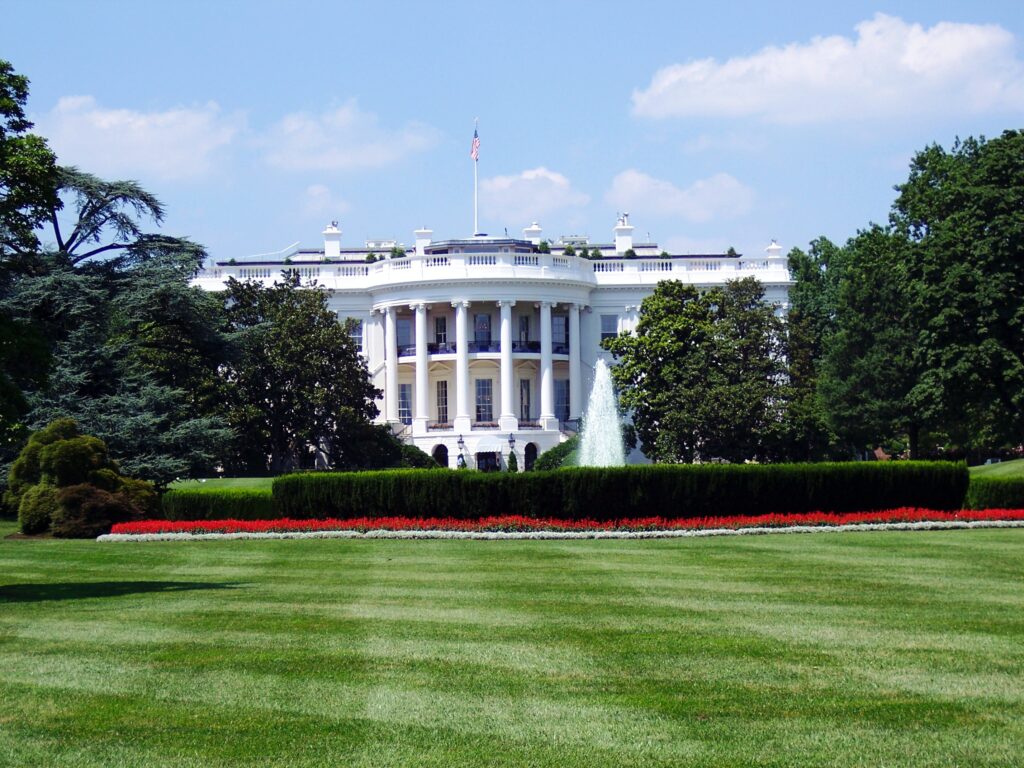The 2020 election was nothing short of unprecendented.
For our final exam, we were given three hours to respond to one prompt to synthesize what we have learned throughout the class: “explain why the 2020 election turned out as it did.” What a complicated question to answer!

As is my typical fashion, my response to this question was far too long. In just three hours, I managed to write 4 and a half pages detailing why I believed the 2020 election occurred in the way that it did. I tried to synthesize all of the things we had learned into broader, overarching categories. In the end, I argued that there are three main reasons behind Biden’s win and the incredibly close election results.
Firstly, unprecedented times created unpredictable fundamentals. Typically, there are a few factors– called fundamentals– that political scientists can rely on for predicting election results. The effects of one of the most important fundamentals–the economy–were difficult to predict this year, as COVID-19 has created uncertainty as to whether the economy really is good or bad. Incumbency is another fundamental factor that would typically provide Donald Trump with an edge, but the tumultuous year might suggest otherwise.
Secondly, I argued that Joe Biden’s team simply ran a campaign that was more suitable to their goals than Donald Trump. The Biden campaign focused on stressing unity and hope while also encouraging people to vote and presenting Biden in a positive light. This strategy was helped by the fact that Biden received very little negative media coverage as compared to Clinton in 2016, largely due to his own lack of notable scandals. In class, we learned that positive strategies and media coverage are ideal for increasing voter turnout and motivating political participation. Donald Trump’s campaign, on the other hand, was more fear-based and divisive. Fear-based campaigns tend to work better for challengers, not incumbents, and motivate voters to rethink their prior beliefs. As an incumbent, it may have proved more efficient for Trump to run a more positive campaign in order to maintain his original base, stressing prior accomplishments as reasons for continued support. Instead, supporters were told to be fearful of imminent socialism, Black Lives Matter protests, and more. As an incumbent, Trump’s four years in office should have been able to protect voters from the dangers associated with such fears. Additionally, Trump was damaged by his negative media portrayal that had persisted throughout his four years as President.
Lastly, the most important factor in determining the outcome of the 2016 election was identity politics. Identity politics refers to the tendency of people who belong to certain identities (racial, ethnic, religious, ideological, etc.) to make the same or similar political decisions. In several studies, it has been shown that in almost all social groups—ranging from those categorized by meaningless, arbitrary groupings to entire political parties—individuals are less concerned with their own self-interest or and policy positions than they are with their group or the political candidate from their group ultimately winning against the outgroup in competition.
Lilliana Mason posits that identity politics have grown more potent in recent years with the increasing reliance of voters upon their party-based mega-identities, or alliances between a voter’s political party and the other social identities that they possess. In Identity Crisis, Sides, Tesler, and Vavreck posit that the surprise upset of the 2016 election was largely due to such mega-identity associated identity politics. Specifically, Trump was able to mobilize an already-existing racial resentment “reservoir” among primarily white, non-college-educated Americans. As a result of activating political attitudes among racially-resentful Americans, Trump was able to prevail in several key swing states with the help of white, non-college-educated voters and ultimately succeed in winning the election. In 2020, Trump’s base of racially resentful voters remains incredibly potent, visible, and influential. This is partially why the election results were so close, even though polls would have suggested otherwise.
If race-based identity politics and the creation of a racially-resentful base propelled Trump to victory in 2016, what changed in 2020? The answer lies within identity-based voter demographics that shifted partisan direction from 2016 to 2020. The most dramatic identity-based voter shifts from 2016 to 2020 were among people of color (who shifted Republican), white non-college-educated men and women (who shifted Democrat), older people (who shifted Democrat), and men (who shifted Democrat—with the greatest shift occurring among white men).
In the end, the relatively small Republican shifts among people of color (who still overwhelmingly voted Democrat) were not enough to combat the Democratic shifts among white, non-college educated men and women, men overall, and older age groups. However, Donald Trump’s loyal, racially resentful base rendered the election as much closer than pollsters could have ever predicted.
With all said and done and Biden projected to win Georgia and Arizona, Biden has now garnered 306 electoral votes, as compared to Trump’s 232. Donald Trump continues to contest the election, even in light of the fact that it would take a reversal of the three most contested states–Arizona, Georgia, and Wisconsin–in addition to a reversal of Pennslyvania for him to win the election. At the lowest possible estimate, such a turnover would require a change of over 108,000 votes.
For our last class reading, we analyzed a study that found that voters are more likely to accept candidate behavior that goes against basic democratic principles if the candidate is a member of their own party and with increased polarization. Such findings have rendered 2020 as ripe for an election in which a presidential candidate is actively opposing the results of a longstanding democratic voting system. Although Trump may be out of the White House come January, the damage he has done to election integrity may be visible for years to come.